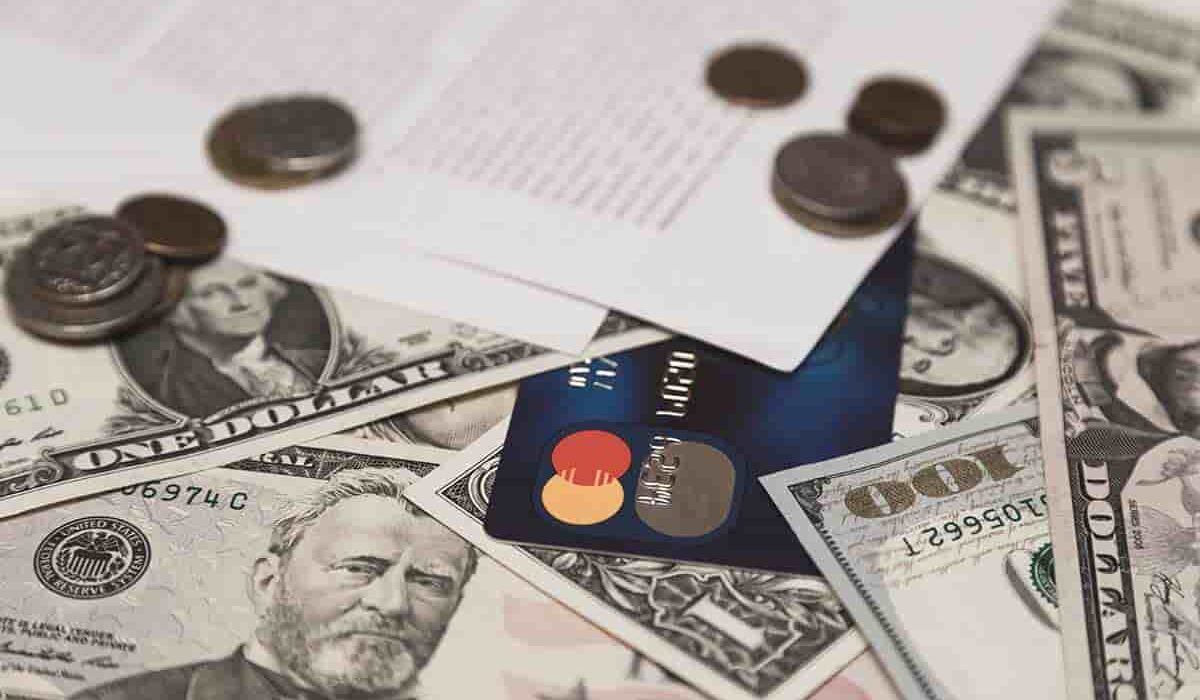7 Good Money Management Tips for Beginners You Gotta Start Now!
When you’re drowning in debt on top of paying your living expenses and other necessities, it can easily feel as if your money goes everywhere but in your pocket. Unfortunately, this leaves many people lost and overwhelmed when looking over all of their expenses and realizing their money management isn’t at the level they want it to be. Luckily, we can help you change that.
Implementing the seven money management tips we’ve listed below will undoubtedly pull you out of that financial slump and give you some economic breathing room. From emergency savings accounts to monthly budgets and more, we’ll detail how any beginner can start on the right foot or get their money management back on track. But you have to start now!
What Does Money Management Mean in Personal Finance?
You might hear the term money management and automatically think about large corporations, meaning this has nothing to do with you. However, good money management skills are something everyone can use, especially for personal finance.
Money management skills are a set of tools you use to plan for the future and keep your finances in order. They essentially allow you to make a financial game plan detailing all of the things in your life you want to pay off, things you want to pay for, and how you’re going to reach these goals.
By properly implementing money management strategies, you can:
- Improve your credit score
- Eliminate debt
- Save substantial funds for large life events (ex. vacations, weddings, a new house, college)
- Invest your money to profit
- Better improve personal mental health
- Live a healthier lifestyle
Of course, the key to this process is starting as early as possible and recognizing that you’re in for the long haul here. Some money management tips below will yield results within weeks or months, and others won’t pay off for years.
Although it will be undoubtedly challenging, we highly recommend you stay determined and optimistic during this process. The easiest way to do this is by adapting our seven tips below and, together, you’ll find your personal finances are finally working for you rather than against you.
7 Good Money Management Tips for Beginners You Gotta Start Now!
Sometimes the hardest part about incorporating good money management skills into your everyday life is knowing where to start. Well, look no further than the seven tips we have listed here.
All of these beginner-friendly tips can be done at any point in your personal financing journey and are guaranteed to help improve your life with enough dedication and patience. We recommend following them in the order they’re listed for maximum results.
Tip 1: Have Clear Goals for Your Money Management
Before we get into the nitty-gritty of improving your overall money management, you need to have a serious conversation with yourself and determine your ultimate money management goals.
Most people ready to make a change and adapt some helpful money management tips do this because something has happened in their life that has brought them to this moment. Maybe they’re drowning in debt and have no idea how they’re going to dig themselves out. Conversely, maybe they’re actually doing quite well financially but want to know how to save more or even increase their monthly income.
These are all great reasons to start this personal financing journey, but it’s important to know what drives you before moving on to any of the next steps.
As we said before, using good money management is a long-term process, and sometimes, you won’t see results for months or even years. Therefore, if you don’t have a goal in mind, you won’t stay determined throughout this process long enough to see all of your hard work pay off.
We truly want you to be able to improve your personal finances, whatever that means for you, so we strongly urge you to pick one to three things you want to achieve with this process and write them down for motivation.
Tip 2: Make a Monthly Budget
This tip should be the first place you need to start when it comes to good money management, apart from detailing your goals.
Before you can get your money situated the way you want, you need to clearly see where it is all going and how much basic living and debts expenses cost you on a monthly basis.
To do this, we highly recommend recording all of these monthly expenses somewhere you can visually see and refer back to throughout the month. This can either be in an Excel document, a personal notebook, or on a piece of paper you put up somewhere in your home.
On your personal budget, you should clearly label how much everything necessary costs you per month. This can include:
- Rent/mortgage payment
- Utilities
- Food
- Car payments and insurance
- Credit card payment
- Any loans payments (college loans, personal loans, etc.)
- Family expenses (ex. daycare for the kids, extracurricular costs, pet food)
- Travel expenses
- Medical expenses
These are all things you will have to pay throughout the month that isn’t really negotiable but rather essential to your everyday life. Once you have all of these items and their figures clearly laid out, you’ll have a more concrete number that you need to reach monthly in order to at least cover the essentials.
Tip 3: Track Your Expenses
Now that you know how much money you’re feasibly spending on the essentials and your three pleasure exceptions, it’s time to track your expenses.
Not so long ago, people used to balance their checkbooks to keep track of how much money they’re making and spending throughout the month. These are still fantastic tools you can still use today, but if you find them to be a bit outdated, there are electronic trackers you can use instead.
You can also record all of your expenses in a notebook or Excel document. If you do this, we recommend categorizing your expenses using the list above. This will make it easier for you to organize everything and add them up at the end of the month.
Tracking your expenses will give you a clear vision of where all of your money is really going. It’s one thing to create a monthly budget, but it’s another thing entirely to follow it. Many people would be surprised at how easily and frequently they go over their own budgets and spend two to three times more money on a category than they initially anticipated.
By tracking all of this, you can make changes to your budget, so you’re more prepared. If it is a non-negotiable cost, like medical expenses, you’ll want to increase the amount on your budget, so you are aware you need to save more to pay off this category.
Some categories, like food or utilities, are more negotiable than you think. There are many tips and tricks you can utilize to make both of these cheaper and ultimately save money to meet your budget amount rather than exceeding it.
Tip 4: Make an Emergency Fund
We know you really want to start paying off all of that crippling debt or saving up some extra cash for a nice purchase, but we really want to stress the importance of prioritizing an emergency fund first.
An emergency fund should be a high-yield savings account you have created separately from your other money where you will place three month’s-worth of living expenses. So, if the overall cost of your monthly budget is $3,000, then you’ll want $9,000 in this account.
The reason for this emergency fund is because it will give you some much-needed peace of mind while you’re paying off debts, saving, and investing money. Once you have this fund all set, you’ll know you have money on hand should an absolute emergency occur (ex. job loss, unforeseen medical expenses, family death).
The high-yield savings account will help this money work for you because they have higher interests. Meaning, the longer your money can sit in this account and the higher amount you’ve saved, the more it will profit over time.
So, once you get that $9,000 in the account, you don’t have to add any more to the emergency fund unless your cost-of-living changes, and then, while it sits in the accounting for you, it will actually increase in value over time.
Tip 5: Set Up Specific Bank Accounts
Another way to promote good money management is to have various bank accounts set up and created for specific reasons. This will also help with the next tip of automatic payments.
Contrary to belief, you don’t have to be confined to the typical one checking and one savings account system. You can have multiple savings account with varying interest levels to help you better organize your money.
We recommend having at least one checking account to keep leftover money you aren’t using to pay off debt, invest, or save. This could be the money you use to pay for typical expenses or money you keep for yourself to purchase items to treat yourself with.
Apart from the checking account, you should have several savings accounts designated for different tasks. The best thing to do is to have high-yield savings accounts for things you intend to save over time and don’t foresee yourself using in the near future (ex. weddings, a down payment on a house, a new car, a big vacation).
Again, the concept here is to use these high-interest accounts so the money you put in and save increases more exponentially over time than it would in a regular savings account.
It might also benefit you to have separate accounts for different payment categories. For example, if you have to pay for student loans, car loans, or credit card payments monthly, it might help to have a separate account set up for these payments.
This way, you can put money in these accounts and never touch it because you know it’s designated for these tasks. As a result, you are less likely to spend the money you needed for essential payments.
Tip 6: Use Automatic Payments
If any of your credit cards or other payments allow you to opt for automatic payments, we strongly recommend doing so. This is for two reasons.
The first reason is that it will ensure you never forget to pay these essential debts or payments. Therefore, it eliminates the chances of you receiving additional charges or late fees. This will also help your credit scores increase if it’s clear you always make your payments on time.
The second reason is that most companies will give their clients some percentage discount if they opt for automatic payments over the manual. This is because automatic payments provide the company with more security, so they have these incentives in order to entice their clients to enlist in this option.
A lot of companies will also allow you to choose the day you want your payment to be charged, and some will allow you to change the date a set number of times. This gives you the freedom to choose a day in the month that works best for you financially, and then once the date is set, you’ll know without a doubt that you’re paying these companies on time.
Tip 7: Prioritize Debt over Savings
Our final tip has to do with how you should prioritize your money management and personal finances. Again, when you’re drowning in debt, it can be difficult to know where to start, which is why we recommend following the financial game plan listed below for the quickest solution and best results.
Remember, your emergency savings fund needs to come before any of this so you have that security when you’re paying off debt and you don’t enter more debt trying to pay for an emergency without the fund.
Step 1: Pay off high-interest debt first
This is any debt over 7% (ex. credit cards) and should be prioritized because the interest rate on these forms of debt is higher than the average stock market return. Meaning you are losing more money on these forms of debt than you could earn investing in the stock market, so prioritize them first.
If you have multiple accounts or credit cards with this percentage, prioritize them one at a time. Of course, you’ll still pay the minimums on them, but all of your extra money should go to one card with the highest interest rate instead of splitting numerous cards evenly. This will help you pay them off faster instead of constantly being beaten down by interest fees.
Once these high-interest debt accounts are paid, stay out of high-interest debt.
Step 2: Pay off low-interest debt
This is any debt below 7%, such as student loans, car loans, mortgages, etc. You want to be debt-free before moving on to the next step. This is also a good time to split your extra money between your low-interest debt and a retirement fund if that is a money management goal for you (arguably, everyone should have this goal).
Step 3: Start saving and investing your money
It doesn’t make any sense to save and invest money that you don’t really have because you’re in debt. Therefore, you shouldn’t touch this step until you are debt-free and have the money to spare, but once you do, you can start tossing your savings into those high-yield savings accounts for long-term goals or into normal savings account for short term goals along with the stock market investments.
Final Thoughts
There you have it; seven ways you can improve your money management skills regardless of where you are in your financing journey. Remember that everyone’s money management journey is going to be different, and it isn’t the type of process that has immediate satisfaction.
This will be something you need to work hard at, but it will undoubtedly pay off over time. The worst thing you can do is wait to start. The earlier you use good money management, the sooner your personal financing can improve and be a source of security rather than a source of stress.




